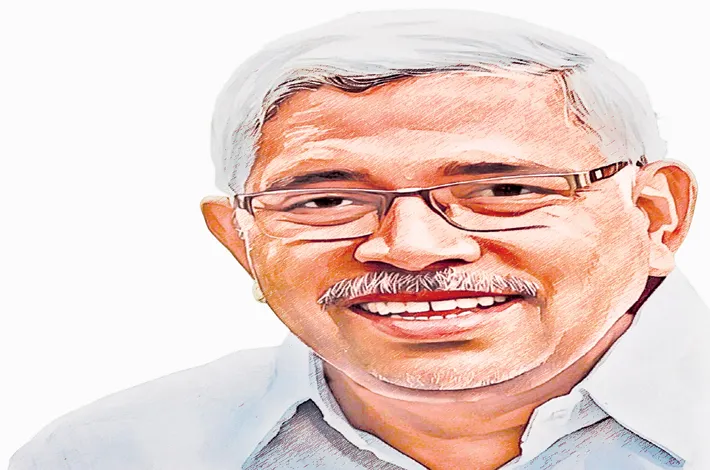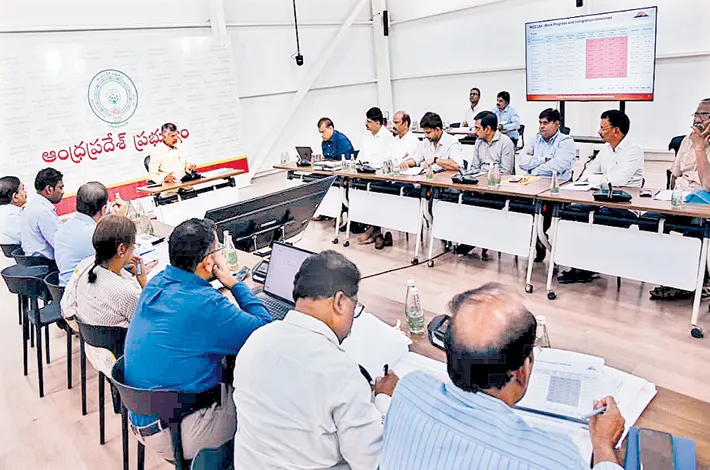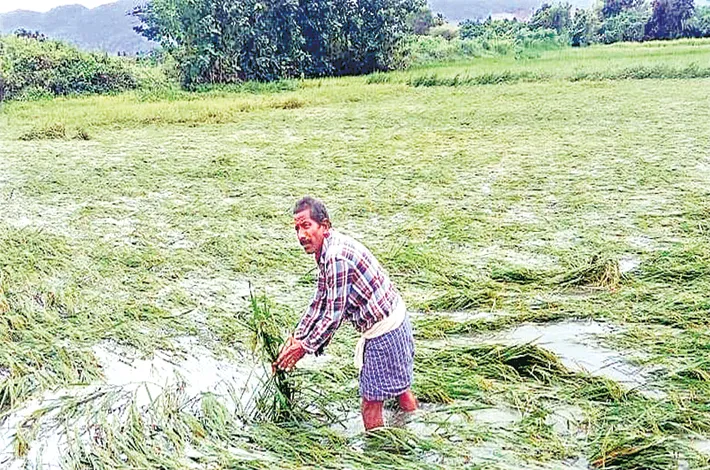SEBI’s vicious assault on rural SMEs, farmers, and PSU banks
20-10-2025 12:00:00 AM

SEBI’s misinterpretation of the old Act threatens to cripple rural economies and destabilise banks. This isn’t regulation, it’s vendetta
SEBI has spent over a decade stumbling through a regulatory minefield of its own making, wielding a grossly distorted interpretation of Section 67 of the 1956 Companies Act like a blunt axe against India’s Small and Medium Enterprises (SMEs), particularly in the sugar industry. By branding private placements to more than 50 investors in a single financial year as “Deemed Public Issues” (DPIs), the SEBI is unleashing a torrent of economic devastation, threatening farmers, banks, and rural economies. This isn’t just a misstep—it’s a full-blown assault on rural India’s economic backbone, driven by a regulator who can’t read the plain English of a statute and refuses to course-correct. SEBI’s actions are a masterclass in regulatory incompetence mixed with arrogance, and the fallout can be catastrophic.
Butchery of Section 67: SEBI’s claim that allotting securities to 50 or more investors in a financial year triggers a DPI is a grotesque distortion of the Companies Act, 1956. The term “financial year” is nowhere to be found in Section 67, which clearly states that a single offer to 50 or more persons constitutes a deemed public issue. The 1956 Act is silent on any annual cap, meaning companies could legally make multiple genuine private placement offers, each to fewer than 50 investors, without breaking the law. Yet, the SEBI has conjured up a “financial year” restriction out of thin air, slapping it onto pre-2014 cases with a reckless disregard for the law. The Companies Act, 2013, introduced a 200-investor cap per financial year, proving the legislature knew how to include such a limit when it wanted to. SEBI’s attempt to retroactively impose this on the 1956 Act is not just legally baseless, but it’s a brazen act of statutory vandalism. The Supreme Court has repeatedly slammed such overreach.
SMEs Crushed by SEBI’s Ignorance: SEBI’s DPI policy is wreaking havoc on India’s SMEs, with mainly the sugar industry caught in its crosshairs. Sugar companies, vital to rural economies, operate in a delicate ecosystem where it is common to issue preference shares to farmers while providing corporate guarantees to public sector banks for Kisan Credit Cards. This symbiotic relationship keeps the sugarcane supply chain humming. But SEBI, in its infinite folly, wants to cancel these allotments as DPIs, forcing companies to refund farmers and gutting their balance sheets. The result? Corporate guarantees may collapse, and PSU bank loans, worth tens of thousands of crores, may turn toxic. This isn’t regulation; it’s economic sabotage. Thousands of companies, including many PSUs, issued securities to more than 50 investors in a single year under the old Act without public issue processes. SEBI’s illegal stand to cancel these allotments could unleash a tsunami of litigation, paralysing the financial system and dragging India’s rural economy into a quagmire.
SEBI’s Cruel Indifference: The human toll of this stand of the SEBI will be staggering. Farmers, who double as shareholders and sugarcane suppliers, are being hung out to dry. These small and marginal farmers rely on sugar companies’ corporate guarantees to access credit for seeds, fertilisers, and survival. SEBI’s plan to cancel their shares would strip them of their investments and destabilise their livelihoods, all in the name of “investor protection”. Reopening cases from over a decade ago is a cruel and arbitrary act.
SEBI’s Financial Time Bomb: Public sector banks, already burdened by NPAs, face a nightmare of SEBI’s making. Corporate guarantees from sugar companies back loans worth tens of thousands of crores, extended to farmers via Kisan Credit Cards. If SEBI’s cancellations tank these companies’ finances, those guarantees become worthless, and banks will drown in bad loans. SEBI’s failure to consult the RBI, the Finance Ministry, or the PMO before charging headlong into this disaster is a damning indictment of its recklessness.
SEBI’s Legacy of Incompetence and Arrogance: SEBI’s track record in the last decade or so is a litany of disasters—illiquid options, LTCG, NSEL broker cases—all marked by ill-conceived orders that clogged courts and regulators for years. The DPI fiasco is just the latest chapter in this saga. SEBI’s leadership has wasted a decade chasing “ghost violations” that exist only in their muddled minds. An internal DPI policy, reportedly approved by former chairman UK Sinha, was kept secret and applied with infuriating inconsistency.
A Desperate Plea for Sanity: The Ministry of Corporate Affairs, the Finance Ministry, and the PMO must step in before SEBI triggers an economic apocalypse. An urgent opinion from the Attorney General or Solicitor General is needed to slap some sense into SEBI and clarify that Section 67 of the 1956 Act does not impose a financial year limit. ROCs must be ordered to halt DPI-related actions, as SEBI’s pressure on them is nothing short of regulatory bullying.
Even in cases where violation is established, a disclosure-based approach, letting investors choose whether to stay invested or seek refunds, is the only rational path forward—one SEBI has followed in hundreds of cases but now inexplicably abandons.
SEBI’s Reign of Error: SEBI’s relentless assault on SMEs, farmers, and banks is a masterclass in regulatory failure. Its misinterpretation of the old Act threatens to cripple India’s rural economies, destabilise banks, and impoverish millions. This isn’t regulation—it’s a vendetta against progress, waged by a regulator too clueless to read the law and too stubborn to admit mistakes. Without swift intervention, SEBI’s blunders will leave a trail of rural economic devastation.
One final observation: such inconsistent and patently illegal decision-making has been enabled by the complete breakdown of SEBI’s internal vigilance mechanism . Unless this systemic failure is addressed, similar episodes are bound to recur.








